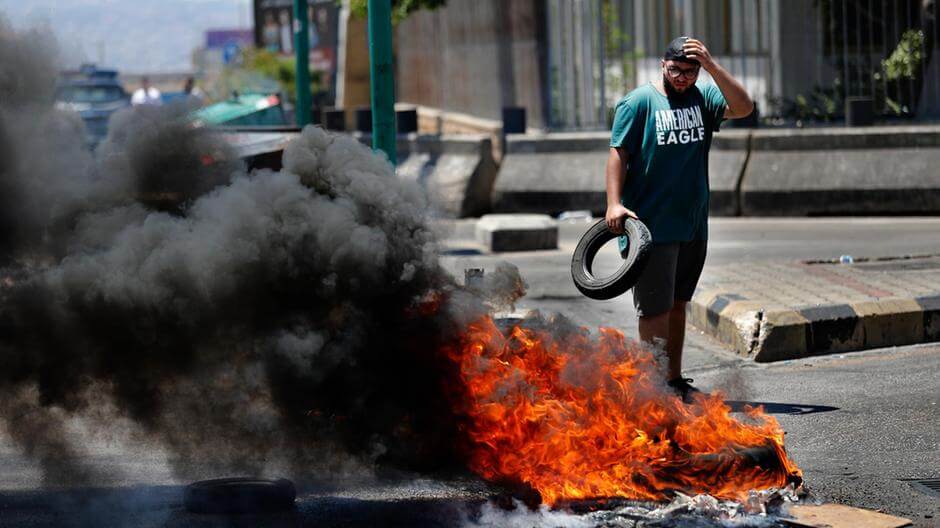Workers in Lebanon went on a general strike on Thursday to protest worsening economic conditions in the country, resulting in the closure of shops, businesses, and banks as people called for the government to take more significant action to address the financial woes.
Lebanon’s National News Agency reported that both private and public sector employees participated in the strike called by the General Labour Confederation and demanded the formation of a “national rescue government” to put an end to the country’s distress. Several political parties, including President Michel Aoun’s Free Patriotic Movement, Prime Minister-designate Saad Hariri’s Future Movement, and the Amal party, also supported the strike. However, their participation was criticised by activists and critics, who accused them of not doing enough to lift the country out of its misery.
Opposition politician and leader of the Kataeb party Samy Gemayel mocked the participation of the three main political parties by tweeting: “The system is on strike against itself today.” A protester told The National that “they [politicians] are trying to paint it as political parties participating in protests, but this is the pain of the Lebanese people.” He added that the formation of the government was the “only solution” to save Lebanon.
Lebanon’s army chief Joseph Aoun raised concerns about the dire economic situation in the country and said that the ongoing crisis could affect the military harshly. Aoun has warned that the deteriorating financial situation would “inevitably lead to the collapse of institutions, including the military establishment.” He called the army the “last institution” still capable of defending Lebanon’s “security and stability.”
Earlier this month, the World Bank stated that the country’s economic crisis ranks as one of the worst the world has witnessed in over 150 years. It reported that “Lebanon is enduring a severe and prolonged economic depression,” which is among the “most severe crisis episodes globally since the mid-nineteenth century.”
“Lebanon’s GDP plummeted from close to US$55 billion in 2018 to an estimated US$33 billion in 2020, while GDP per capita fell by around 40 per cent in dollar terms,” the World Bank estimated, saying that “such a brutal contraction is usually associated with conflicts or wars.”
The World Bank added that the country is witnessing growing joblessness, and “households face difficulty accessing basic services, including health care.” It blamed “continuous policy inaction and the absence of a fully functioning executive authority” for aggravating the crisis.
Lebanon has been facing an acute economic and political crisis for several years. The country descended into chaos following last year’s devastating blast at the Beirut Port, resulting in more than 200 deaths and about $15 billion in economic losses. The government also stepped down after the explosion and has been unable to form a new cabinet ever since.
In light of Lebanon’s deteriorating economic situation, the World Bank has stated that the crisis can only be resolved by a “reform-minded government, which embarks on a credible path toward economic and financial recovery.”
Lebanese Workers Strike Over Worsening Economic Crisis
The World Bank has called Lebanon’s economic crisis the worst in the world in 150 years.
June 18, 2021

SOURCE: ASSOCIATED PRESS
